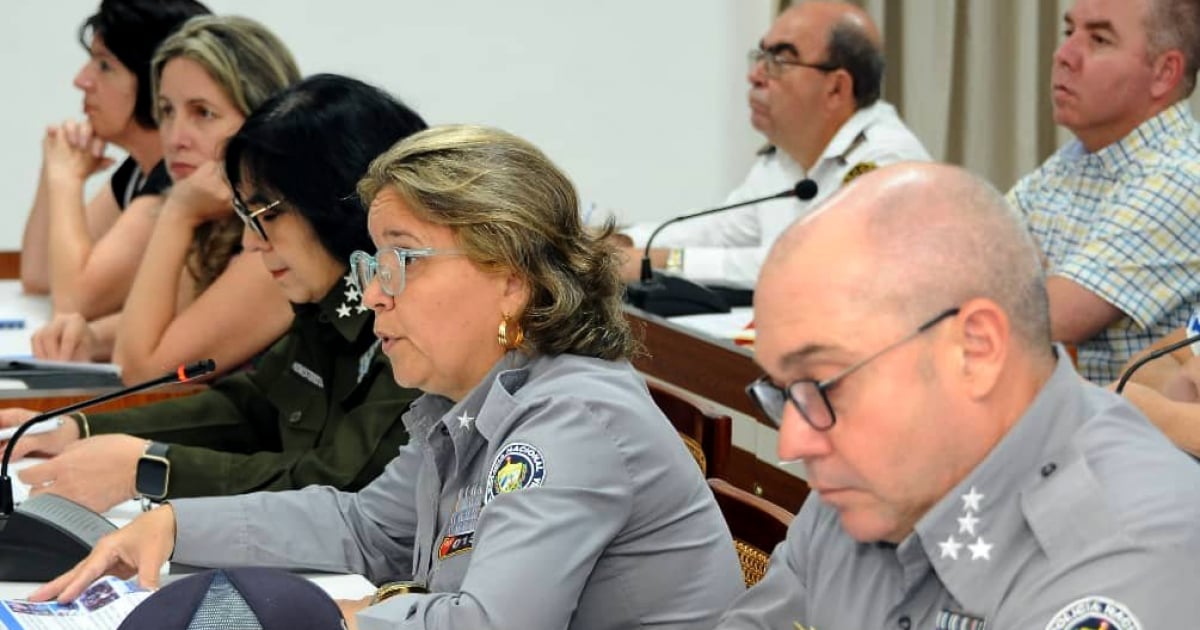
The Cuban government acknowledged that its policy of "strong hand" and confrontation against crime is not yielding results and that criminal "phenomena" are proliferating in society.
Authorities recognized this during the working group meeting for the prevention and combating of crimes and illegalities, held on Thursday in the halls of the Palace of the Revolution.
Headed by the Prime Minister, Manuel Marrero Cruz, the meeting served to analyze the outcome of the "confrontation" in the month of April. As reported on the Presidency's website, the head of government pointed out that "progress is not being made in identifying and eliminating the causes and conditions that favor the proliferation of these phenomena."
An effective administrative confrontation is not achieved in factories, warehouses, where problems arise, in most cases. The population's dissatisfaction persists, indicating that the work is still insufficient. Actions, mainly preventive ones, must be intensified," emphasized the leader.
The official information itself focused on the deficient strategy underlying the policy of "confrontation with crimes and illegalities" promoted by the government of the so-called "continuity" led by Miguel Díaz-Canel.
"There is indeed confrontation," observed Marrero Cruz, but crimes and illegalities are proliferating instead of decreasing. And that, according to the Prime Minister and advocate of the "iron fist" and the fight against "softness," is because Díaz-Canel's government has not managed to identify the "causes and conditions" that foster criminal behaviors in the country.
Due to not knowing the causes that lead to the proliferation of crimes and illegalities, Díaz-Canel's government does not act effectively to eradicate these behaviors that continue to reproduce despite the State pursuing and punishing them, sometimes even in an "exemplary" manner.
In the meeting, it was also acknowledged that there are still "evasive behaviors that need to be identified and addressed" in tax collection. However, the head of the National Office of Tax Administration (ONAT), Mary Blanca Ortega Barredo, reported that, as of the end of April, the revenue collection figure shows growth compared to the same period last year.
In the first four months of 2024, ONAT inspectors have carried out around 9,300 tax control actions that have detected debts amounting to over 336 million pesos.
During 2023 and up to date, 194 reports of tax evasion complaints have been filed. Several of these cases have punished tax offenses with revocation of authorization to carry out the activity, as well as temporary and permanent closures of establishments (official information did not specify the number of such sanctions imposed on evaders).
The impact of inflation on price formation, widespread scarcity, the dollarization of the economy, and the consolidation of an informal currency market, increasing inequality, rising poverty, and the feeling of abandonment and hopelessness of a population that sees how the regime and its policies increasingly exclude them from the distribution of national wealth, withdrawing "undue subsidies and excessive gratuities," while also increasing blackouts and repression, all constitute the "breeding ground" for criminal behavior among Cubans.
The "causes" are visible: the political system of the Cuban totalitarian regime obstructs reforms and the possibility of a change that is increasingly necessary in a country that, without human rights or real political and civil freedoms, experiences the emergence of an "oligarchy" in the Russian style that appropriates national wealth and excludes increasingly large sectors of society, leaving millions of Cubans marginalized, desperate, and at the mercy of their ability to survive.
What do you think?
COMMENTFiled under: